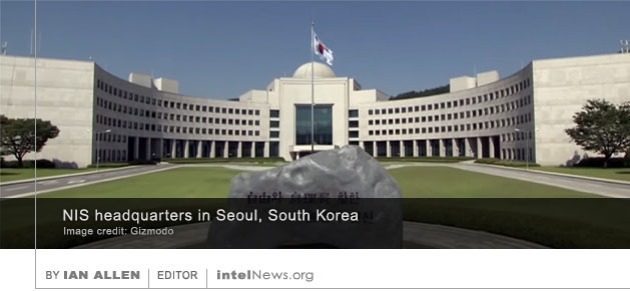South Korean president fires nation’s spy chiefs in major intelligence shake-up
November 27, 2023 1 Comment
 IN A SURPRISING MOVE that has stirred curiosity across Asia, South Korean President Yoon Suk Yeol has abruptly ousted the entire senior leadership of the National Intelligence Service (NIS), a powerful entity in the country. The announcement came through a statement released on Sunday by the Office of the President, stating that President Yoon had accepted the resignations of the NIS director and two deputy directors. However, it is widely understood that these resignations were not voluntary but rather a result of pressure exerted by the president.
IN A SURPRISING MOVE that has stirred curiosity across Asia, South Korean President Yoon Suk Yeol has abruptly ousted the entire senior leadership of the National Intelligence Service (NIS), a powerful entity in the country. The announcement came through a statement released on Sunday by the Office of the President, stating that President Yoon had accepted the resignations of the NIS director and two deputy directors. However, it is widely understood that these resignations were not voluntary but rather a result of pressure exerted by the president.
Among those dismissed, Director Kim Kyou-huyn and First Deputy Director Kwon Chun-taek, both considered close to President Yoon, had lengthy backgrounds in South Korea’s diplomatic corps. Kim, a seasoned executive with deep insights into South Korea-United States relations, had served lengthy tours in the South Korean embassy in Washington. Kwon, with experience in the diplomatic corps and roles at the United Nations, also had a strong international background. Yoon had appointed both to lead the NIS soon after assuming the presidency in May 2022. The third ousted NIS executive was Second Deputy Director Kim Soo-youn, appointed by Yoon in June 2022. The second deputy traditionally oversees activities related to North Korea, while the first deputy is responsible for the agency’s global collection operations, counterterrorism, and counterintelligence.
Speculation in Seoul abounds regarding the reasons behind President Yoon’s swift decision to dismiss the NIS leadership. A firebrand politician who is seen as a representative of a new generation of South Korean conservatives, Yoon has pledged a robust security and defense policy in response to perceived North Korean provocations. Recent media reports have hinted at Yoon’s impatience with bureaucratic obstacles within the NIS, particularly regarding personnel management.
South Korean media reports indicate that another seasoned diplomat, Hong Jang-won, has assumed the NIS first deputy directorship, while the former North Korea area chief, Hwang Won-jin, has taken over as the second deputy director. Notably, the director position remains vacant, with Hong temporarily leading the agency until a new director is appointed in the coming weeks.
► Author: Ian Allen | Date: 27 November 2023 | Permalink







Perhaps Yoon believed the National Intelligence Service (NIS) was beginning to intervene too heavily into domestic politics in the way the NIS’s predecessor, the Korean CIA, became notorious.
Some history https://www.britannica.com/biography/Kim-Jae-Kyu
On October 26, 1979 General Kim Jae Kyu Korean, head of the Korean Central Intelligence Agency (KCIA) (now the National Intelligence Service) assassinated then South Korean president, Park Chung Hee.
Now, more recently, though less dramatically, in January 2023 https://www.wsws.org/en/articles/2023/01/31/cbbx-j31.html
“The South Korean National Intelligence Service (NIS) and National Police Agency raided the headquarters of the Korean Confederation of Trade Unions (KCTU) on January 18 on the basis of allegations that union officials had violated the country’s draconian National Security Act…[NIS] and police officers also raided the offices of the Korean Health and Medical Workers’ Union (KHMU), a shelter for impoverished workers on Jeju Island, and the homes of the accused officials.”
“While the police have raided or attempted to raid KCTU offices in the past related to strikes and protests, it is the first time they have carried out a search and seizure for documents under the National Security Act. The 1948 law makes socialism illegal in South Korea. It is also the first time the NIS has been directly and openly involved in a raid on the KCTU.”
Comment
These January raids may have been seen by President Yoon (and South Korea’s allies) as undemocratic political over-reach by the NIS or, after a 10 month internal inquiry, the NIS leadership became fall guys for raids perhaps ordered by President Yoon?